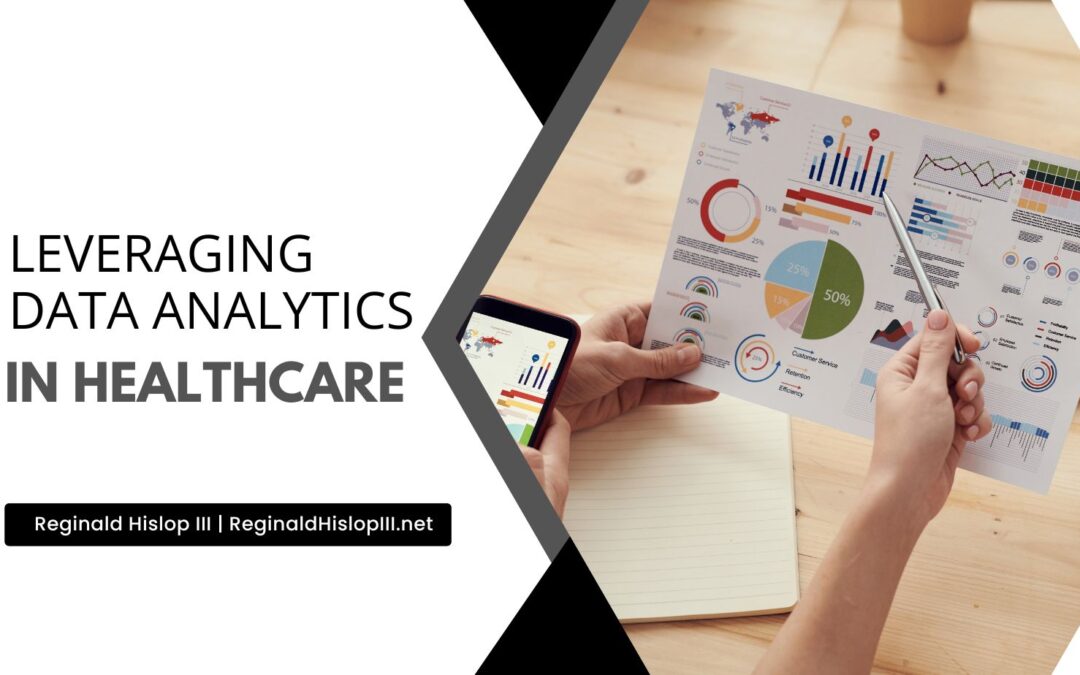Data analytics has become a critical tool in healthcare, providing healthcare organizations with valuable insights into patient care, operational efficiency, and population health. With the increasing availability of health data, healthcare organizations can leverage data analytics to drive better patient outcomes, reduce costs, and improve the overall quality of care.
Healthcare organizations must understand how to leverage data analytics to improve patient care and outcomes.
The Benefits
Improved Patient Outcomes
Data analytics can provide healthcare organizations with insights into patient care and outcomes, enabling them to identify areas for improvement and implement targeted interventions to improve patient outcomes. For example, analytics can help identify patients at high risk for readmission or complications, allowing healthcare providers to intervene early and prevent adverse effects.
Increased Operational Efficiency
Data analytics can also improve operational efficiency in healthcare organizations. By analyzing patient flow, staffing, and resource utilization data, healthcare organizations can identify areas for improvement and implement targeted interventions to optimize operations and reduce costs.
Enhanced Population Health
Data analytics can also help healthcare organizations identify trends and patterns in population health, allowing them to develop targeted interventions to address specific health issues. For example, analytics can help identify populations at high risk for chronic diseases and develop interventions to prevent or manage these conditions.
Improved Financial Performance
Data analytics can also improve financial performance in healthcare organizations. By analyzing financial data, healthcare organizations can identify areas for improvement, such as reducing costs or increasing revenue, and implement targeted interventions to improve financial performance.
The Challenges
Data Quality and Integration
One of the primary challenges of data analytics in healthcare is the quality and integration of data. Healthcare data is often fragmented, stored in multiple systems, and of varying quality. This can make integrating data from different sources challenging and ensure its accuracy and completeness.
Privacy and Security
Data privacy and security are also significant challenges in healthcare data analytics. Healthcare data is susceptible and subject to strict privacy and security regulations. Healthcare organizations must ensure that they have appropriate security measures to protect patient data and comply with regulatory requirements.
Data Governance and Management
Effective data governance and management are critical for successful data analytics in healthcare. Healthcare organizations must establish clear data governance policies and procedures, including ownership, quality, and access. They must also have robust data management processes to ensure accurate, complete, and up-to-date data.
Data Analytics Expertise
Data analytics requires specialized expertise, including data management, statistical analysis, and machine learning. Healthcare organizations must ensure they have in-house expertise or partner with external experts to leverage data analytics effectively.
How to Leverage Data Analytics in Healthcare
Establishing Clear Goals and Objectives
Establishing clear goals and objectives is critical for effective data analytics in healthcare. Healthcare organizations must identify the business problems they want to solve, such as improving patient outcomes or reducing costs, and develop a clear plan for leveraging data analytics to achieve these goals.
Investing in Data Infrastructure
Investing in data infrastructure is also essential for effective data analytics in healthcare. Healthcare organizations must ensure that they have the necessary data storage and processing capabilities to manage large volumes of data effectively. They must also invest in data integration tools to provide accurate, complete, and up-to-date data.
Developing Data Analytics Expertise
Healthcare organizations must also invest in developing data analytics expertise. This can be achieved by hiring data analysts and scientists, providing training and development opportunities for existing staff, or partnering with external experts to leverage their expertise.
Prioritizing Data Privacy and Security
Healthcare organizations must prioritize data privacy and security in their data analytics efforts. This includes implementing appropriate security controls, such as access and encryption, and ensuring data are stored and transmitted securely.
Conclusion
Data analytics has become essential in healthcare, providing organizations valuable insights into patient care, operational efficiency, and population health. By leveraging data analytics effectively, healthcare organizations can improve patient outcomes, reduce costs, and enhance the overall quality of care. However, healthcare organizations must also address data analytics challenges, including data quality and integration, privacy and security, data governance and management, and expertise. By prioritizing these challenges and leveraging data analytics effectively, healthcare organizations can achieve their goals and significantly impact the healthcare industry.

